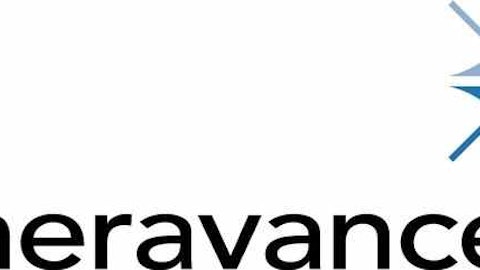MannKind Corporation (NASDAQ:MNKD) has been struggling to get its inhalable insulin product Afrezza on the market; the product was sent back to the labs by the Food and Drug Administration in 2011 for further trials. While the company recently achieved positive results in its phase 3 trials and is hoping to file an NDA soon, there’s a long story behind inhalable insulin that makes me uncomfortable with a stock completely focused on this product.

The long story — will it grow longer?
Inhalable insulin has a history almost as old as insulin itself. In the early 1920s, there were efforts made to create an inhaler because scientists thought people would be averse to pricking themselves in the arm once daily. That effort continued sporadically until 2006, when Pfizer Inc. (NYSE:PFE) got into the game after licensing the rights to a product that came to be known as Exubera.
Analysts averse to pricking themselves once daily predicted a huge future for the product. The product was, no doubt, innovative, requiring complex chemistry to create the airborne stream of insulin that would be properly absorbed in the blood capillaries in the correct amount. Billions of dollars were expected to come off the venture. Pfizer Inc. (NYSE:PFE) itself predicted $2 billion in annual sales.
Unfortunately, however, Exubera failed abysmally. In 2007, Pfizer Inc. (NYSE:PFE) had to recall the product from the market, and it said it would never develop it again. The company suffered a charge of $2.8 billion.
“We faced the combination of breaking through the barrier of conventional insulin therapy and the burden of the product on the medical practices, and this innovation was not accepted,” said Pfizer Inc. (NYSE:PFE) spokeswoman Vanessa Aristide in an email to BusinessWeek at the time.
How this affects Afrezza
This story is germane to Afrezza in two ways. One, because MannKind Corporation (NASDAQ:MNKD) has tried to solve some of the same problems that affected Nektar’s product. And two, because MannKind Corporation (NASDAQ:MNKD) has failed to realize the main problem vexing this budding market.
One of the problems that Afrezza has solved is size. Exubera was intimidating. Try flipping out a foot-size cylinder from your pocket during a dinner date and your date’s surprised face will tell you how discreet that is. Afrezza, on the other hand, is small and cool. It fits right into your palm, so you can use it without drawing attention in a public place. Or frightening your date at restaurants.
The other problem was the drug delivery itself. Exubera’s dosing was confusing, given a non-linear change versus comparable amounts of insulin. Compared to an injection syringe where you can precisely regulate quantity, Exubera’s dosing could be more hit-or-miss for patients. Afrezza, now, is much more carefully developed using its proprietary Technosphere technology.
So, Afrezza is definitely a better product than Exubera, but MannKind Corporation (NASDAQ:MNKD) has not addressed the main problem with the business.
Why Afrezza may not work
What excited investors in the insulin inhaler business probably fail to realize is that with thinning needles and years of practice, as well as the gravity of the disease situation, sticking a needle once or a few times daily isn’t really that much of a daunting task. It is an irritant, but it is not worth paying more for an inhaler version that could potentially create more problems than it solves.
This is the simple but apparently hard-to-understand reason why I think Afrezza will not perform up to expectations in the market. Sure, a few people with trypanophobia will probably buy the product — Exubera made about $12 million in sales before it was discontinued — but unless cost is low, effectiveness is increased manifold, and user safety is confident, there’s limited future for this market.
The article Will History Repeat for Inhaled Insulin? originally appeared on Fool.com and is written by Kanak Kanti, De.
Kanak Kanti De has no position in any stocks mentioned. The Motley Fool has no position in any of the stocks mentioned.
Copyright © 1995 – 2013 The Motley Fool, LLC. All rights reserved. The Motley Fool has a disclosure policy.





